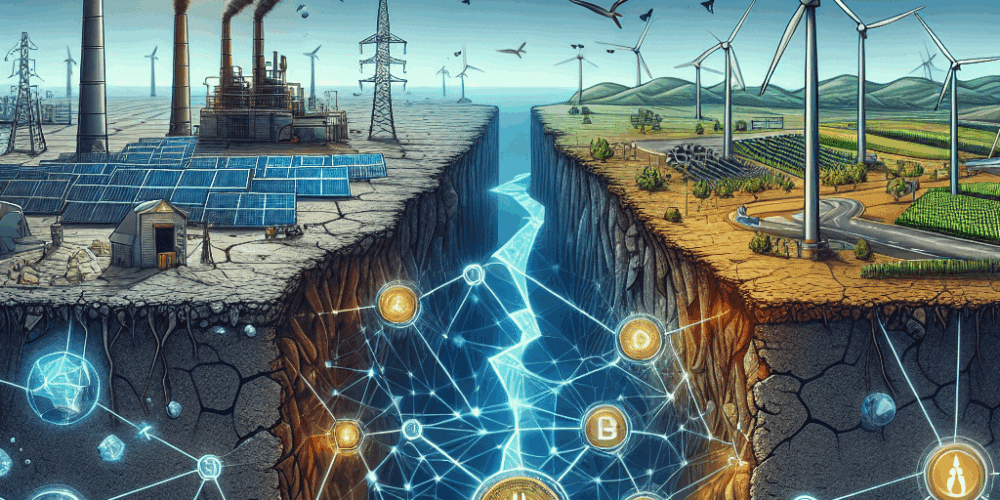In a groundbreaking development that could revolutionize the renewable energy market, blockchain technology is now being employed to facilitate energy trading across borders, enhancing access to sustainable energy resources. This innovative approach not only promises to increase the efficiency of renewable energy distribution but also stands to democratize access to clean power, marking a significant shift in the global energy sector.
The initiative, spearheaded by GreenGrid Tech—a startup headquartered in San Francisco—aims to use blockchain’s decentralized and transparent ledger system to track and trade renewable energy credits (RECs) in real-time. This initiative enables energy producers, from large-scale wind farms to small solar panel installations, to connect directly with consumers and energy traders on an international scale, bypassing traditional power grid constraints and governmental red tape.
This blockchain-based trading platform, dubbed “EnerChain,” was officially launched earlier this week and has already seen participation from over 20 countries, including renewable energy powerhouses like Denmark, Germany, and Canada. EnerChain allows energy producers to tokenize their power output, essentially creating digital assets representing a certain amount of generated renewable energy. These digital RECs can then be traded globally without the physical need to transfer the energy, using blockchain to ensure each transaction is secure, immediate, and verifiable.
The implications of this new technology for the renewable energy sector are vast. Firstly, it could significantly lower the barriers to entry for smaller renewable producers, allowing them to gain fair market value for their energy output without the need for large infrastructure investments. Secondly, it provides countries struggling with high fossil fuel costs an opportunity to purchase renewable energy credits more affordably and efficiently, thereby fostering a faster transition to clean energy economies.
Moreover, EnerChain’s real-time tracking capabilities provide unprecedented transparency in the renewable energy market. With blockchain technology, each REC is linked to a specific unit of energy produced, and its entire trade history is visible and immutable. This transparency not only combats fraud and double-counting but also encourages more responsible energy consumption and production practices.
Industry experts predict that blockchain’s role in renewable energy trading will expand rapidly. According to Mark Sheffield, an energy analyst at Global Energy Insights, “Blockchain could well be the catalyst needed to scale up renewable energy adoption worldwide. Its ability to streamline processes, ensure transactional integrity, and open up markets will likely attract further investments into renewable energy projects.”
However, while the potential benefits are substantial, the application of blockchain in energy trading does come with challenges. Regulatory adjustments will be necessary to accommodate and foster the growth of transnational energy trading platforms like EnerChain. Governments and international bodies will need to work closely to create standardized policies that support the integration of blockchain technologies while ensuring energy sovereignty and security.
Furthermore, as the technology is still relatively new, there is a need for widespread educational initiatives to ensure all stakeholders understand and trust the system. The technical complexity of blockchain can be a barrier to adoption, particularly in regions with less developed digital infrastructure.
Despite these hurdles, the launch of EnerChain is a clear indicator of the shifting paradigms in the energy and technology sectors. As more stakeholders recognize the benefits of blockchain-enhanced renewable energy trading, the impact on global energy policies and practices could be profound, accelerating the world’s transition to a more sustainable and equitable energy future.
In conclusion, the integration of blockchain technology into the renewable energy sector via platforms like EnerChain is not just a technical evolution but a pivotal moment for global energy trade. This development promises more than just economic efficiency; it embodies a forward leap towards achieving global sustainability goals. As this technology continues to develop and gain acceptance, it could very well redefine how the world shares and consumes energy in the future, highlighting once again the transformative power of blockchain technology.




